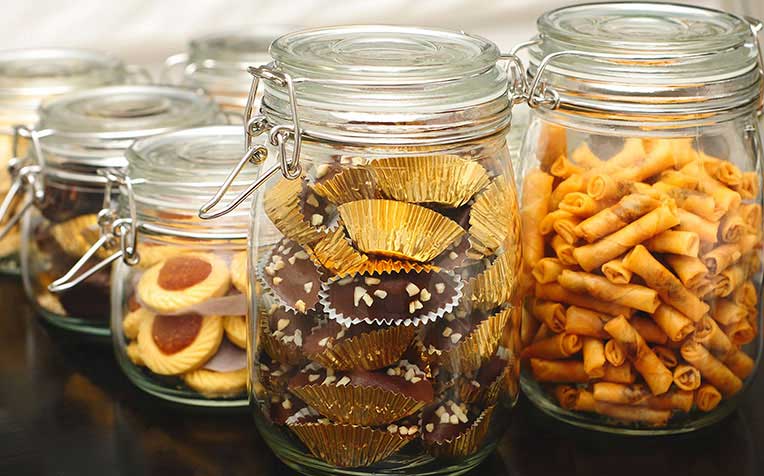
Chinese New Year goodies are highly refined carbohydrates loaded with sugar, so moderation is key to good control.
Visiting friends and relatives and partaking in communal feasting are part of the tradition and excitement of Chinese New Year celebrations.
However, those with diabetes need to be mindful of how much sugar they eat as overfeasting may worsen their diabetic condition. Diabetes is characterised by excess sugar (glucose) in the blood due to the body either not producing enough insulin or being unable to use insulin properly. Without sufficient insulin or the ability to use it, the cells cannot absorb glucose as fuel, resulting in spikes in blood glucose levels.
“Uncontrolled diabetes may cause serious complications and affect your heart, kidney, nerves and eyes. If you are diabetic, watch your blood sugar levels closely during Chinese New Year, especially when you are out visiting,” says Dr Goh Su-Yen, Senior Consultant and Head, Department of Endocrinology, Singapore General Hospital SGH, a member of the SingHealth group.
Chinese New Year goodies: how easy the sugar adds up
Chinese New Year goodies such as pineapple tarts, kueh bangkit, love letters, and peanut cookies are must-haves in almost every household that celebrates the festival. Other perennial favourites are bak kwa and nian gao.
These Chinese New Year delicacies are also highly refined carbohydrates loaded with sugar, so making smart choices and moderation are your key to good control.
| Sample CNY Delicacies | Carbohydrates (G) | Sugar Content (G) | Energy (Kcal) |
|---|---|---|---|
| Packet drink (average) | 24 | 23 | 92 |
| Bak kwa, 1 slice | 22 | 22 | 229 |
| Pineapple tart, 2 pieces | 22 | 12 | 163 |
| Love letters, 2 pieces | 18 | 10 | 112 |
| Kueh bangkit, 2 pieces | 8 | 2 | 46 |
Assuming you eat an average of one slice of bak kwa, six love letters, four pineapple tarts, and consume only one canned drink during a house visit, that is equivalent to a total of 144g of carbohydrates and 99g of sugar. Multiply this figure by three house visits, you would have unwittingly consumed 432g of additional carbohydrates and 297g sugar for the day!
This is about 5 to 7 times higher than the Singapore Health Promotion Board’s recommended daily sugar intake limit even in healthy individuals, which is a maximum of 10 per cent of calories, or 40 to 55g of added sugar.
Do note, however, that all carbohydrates, regardless of source (starch or sugars) will affect blood sugar levels. Therefore, you should be looking at the total carbohydrates eaten during the day.
The more refined the carbohydrates (such as sugars), the faster the glucose is released into your blood stream. This will cause a surge in your blood sugar levels.
“We should also be mindful of total calorie intake. Excessive calorie intake regardless of source (carbohydrate, protein or fat) will result in unwanted weight gain. It is advisable to limit your intake of these festive goodies,” says Ms Kala Adaikan, Principal Dietitian, Department of Dietetics, SGH.
Read on for expert tips on keeping your blood sugar under control during Chinese New Year.
Ref: S13
Contributed by

















